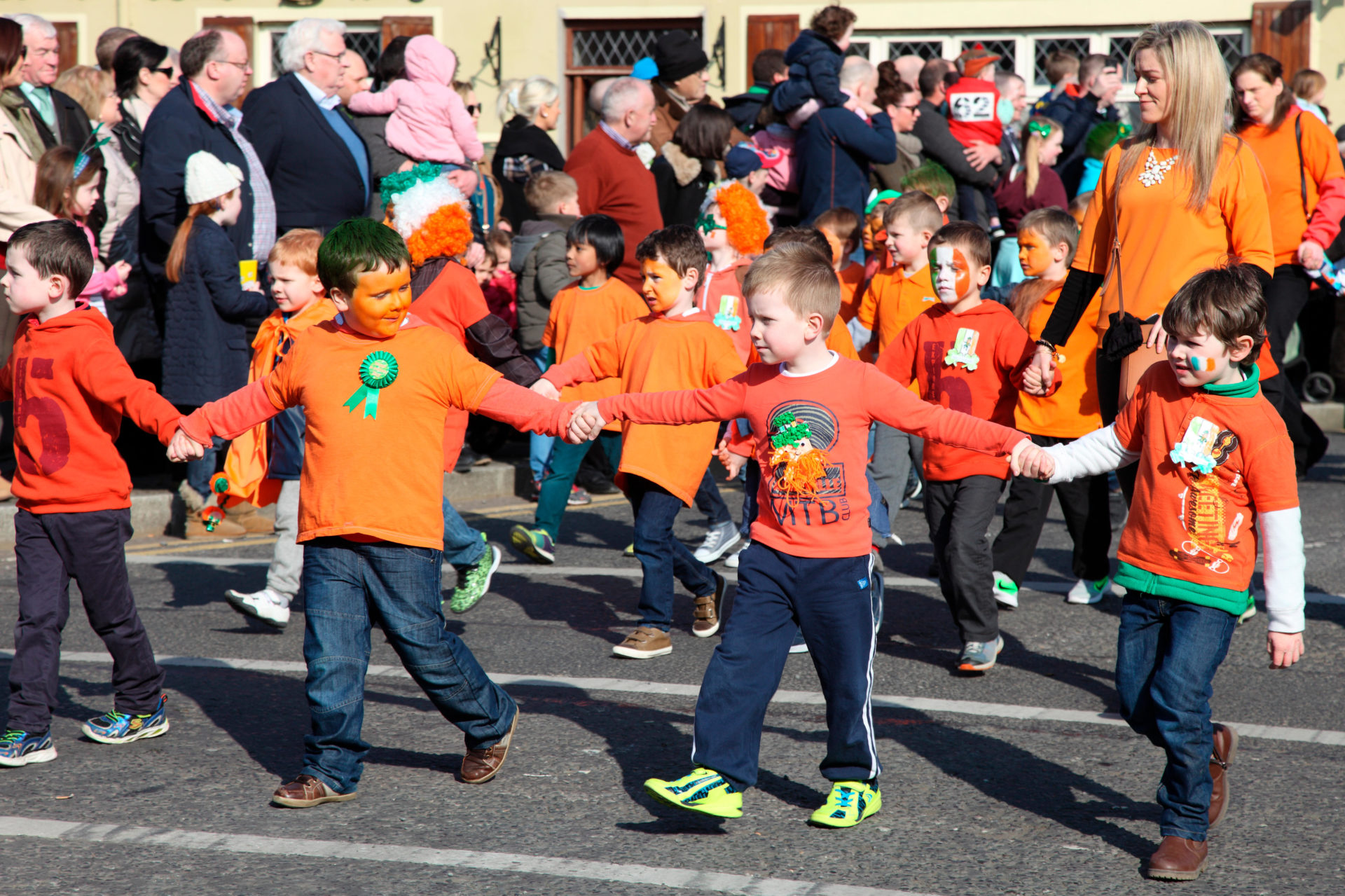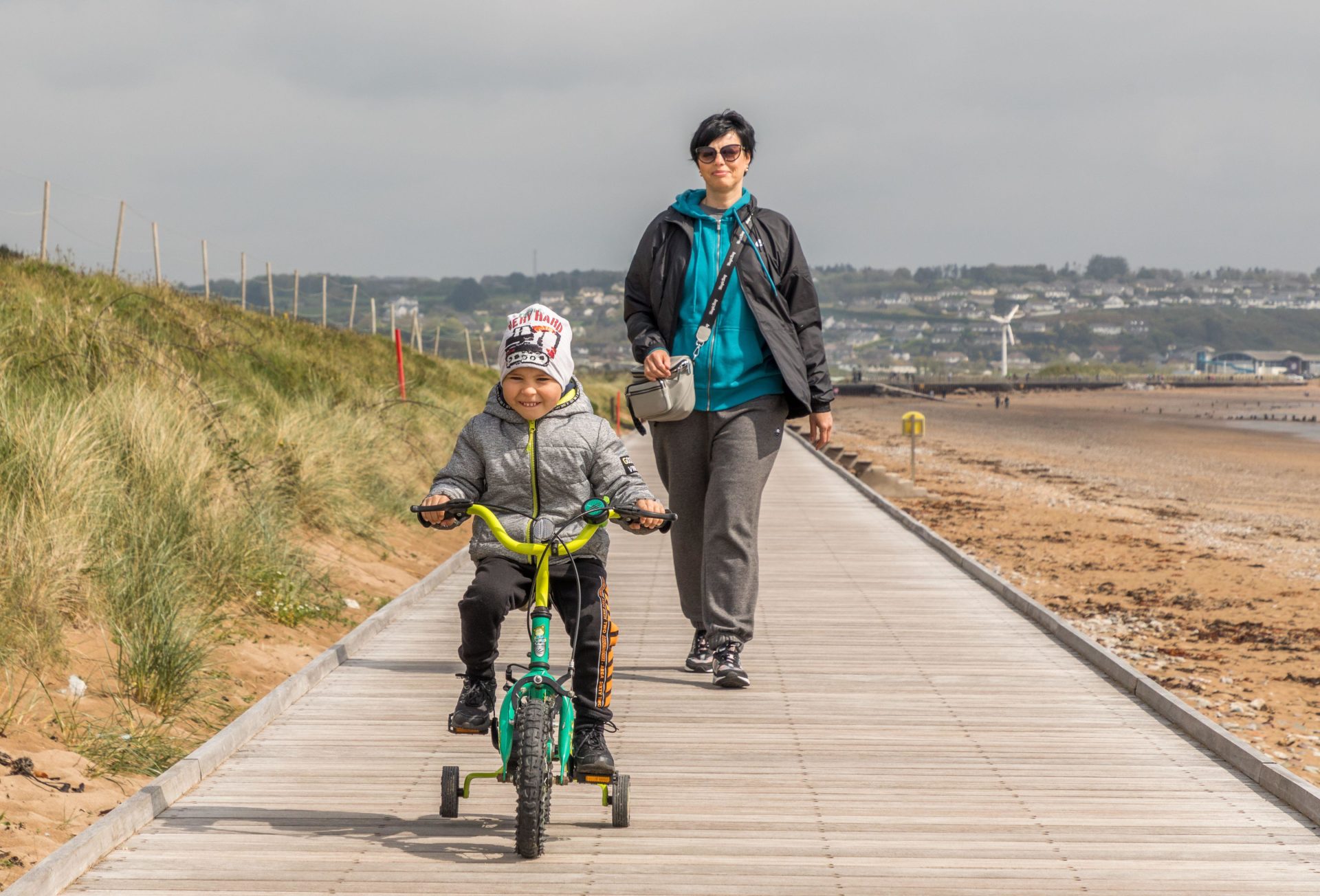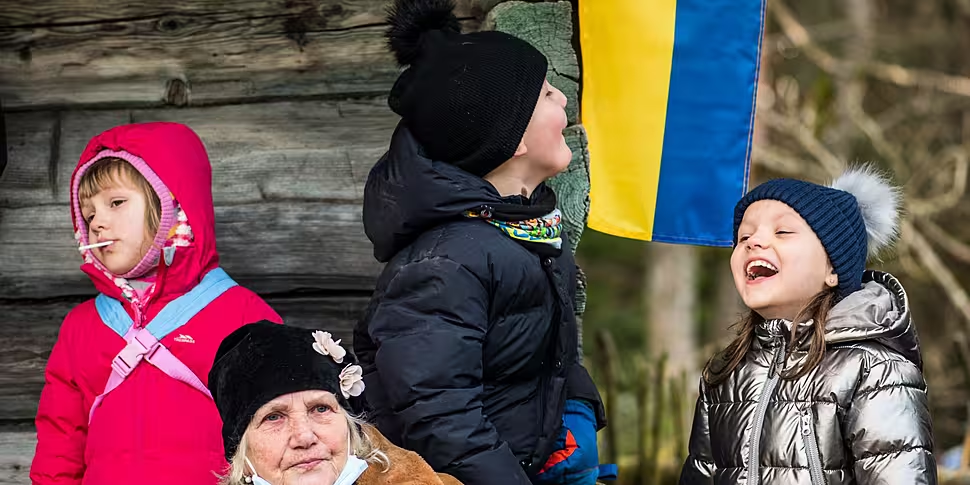Ukrainian children are “rejuvenating” rural Ireland, the CEO of Irish Rural Link has said.
Since the invasion of their country last year, around 80,000 Ukrainians have arrived in Ireland seeking safety.
Disproportionately, they have moved to rural Ireland; at the end of last year, there were 1,890 Ukrainian children enrolled in Dublin schools but there were 1,373 in Kerry.
Speaking to Newstalk Breakfast, Séamus Boland of Irish Rural Link said schools in particular were benefiting from the influx.
“It’s a great story because it effectively does rejuvenate a whole range of things in rural Ireland - especially school numbers,” he said.
“It brings people into the area, it brings services into the area and, of course, it is a great story.
“It is also part of a greater growing acceptance that migrants, whether they are war refugees or others, come into this country and we can accommodate them and do so in rural Ireland.”
 Primary school children in Carrickmacross.
Primary school children in Carrickmacross.In 2020, the Department of Education predicted the number of primary pupils would drop by 20% over the next 15 years amid declining birth rates.
Such a phenomenon could see smaller schools in rural Ireland close and Mr Boland said the arrival of the Ukrainians has reduced the chance of that happening.
“Looking at the figures here, a lot of schools now have increased numbers,” he said.
“So, I think that threat dies away.
“In fact, it may even put pressure [on them] to expand the buildings that schools are in.
“That combined with people working from home in rural areas, I think we have a really good story in terms of rural regeneration.”
 Four year old Ukrainian Matvii Kalinin cycles his bike on the boardwalk and is watched on by his mother Irina Kalinina at Redbarn strand, Youghal, Co. Cork, Ireland. - Credit; David Creedon / Alamy Live News
Four year old Ukrainian Matvii Kalinin cycles his bike on the boardwalk and is watched on by his mother Irina Kalinina at Redbarn strand, Youghal, Co. Cork, Ireland. - Credit; David Creedon / Alamy Live NewsIn recent months, protests have been held by people unhappy with the number of refugees and asylum seekers being housed in their towns and cities.
Mr Boland recognises that finding accommodation for so many people “presents a major challenge” but feels it is one most in rural Ireland have embraced.
“Travelling around rural Ireland, I see nothing of that kind of element of protest or disagreement with people coming into the area,” he said.
“In many ways, people see it as a welcome change because, as I said, these are people who come with great intentions; they’re hard-working, they’re trying to get involved and mix in with the community.”
In March last year, the European Union gave Ukrainians the right to live and work in the bloc for three years.
Main image: Ukrainian children. Picture by: Alamy.com









